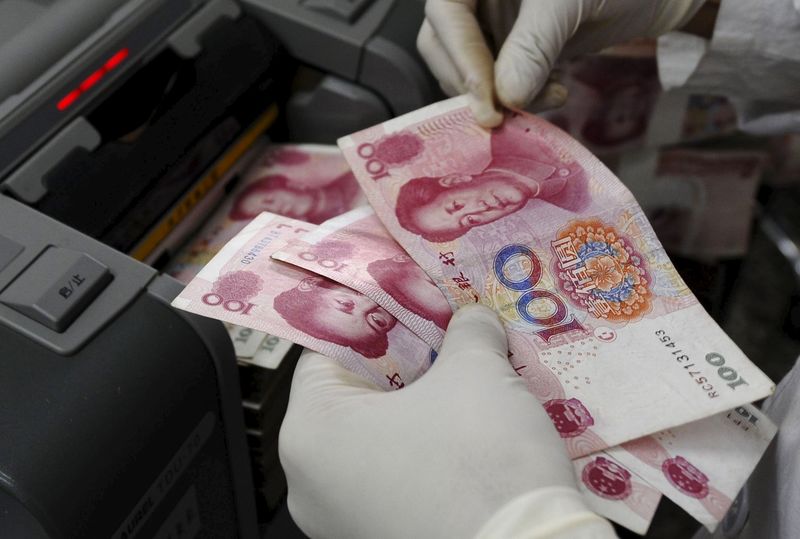By Nathaniel Taplin
SHANGHAI (Reuters) - Activity in China's services sector accelerated in May as new business rose at the fastest pace in three years, a private survey showed on Wednesday, a rare piece of good news for policymakers struggling to reviving a cooling economy.
Still, economists remain cautious on China's overall economic outlook, as credit growth remains weak and manufacturing stagnates, reinforcing views that authorities will have to roll out more stimulus to avert a sharper slowdown.
The headline HSBC/Markit Purchasing Managers' Index (PMI) for May was 53.5, up from 52.9 in April and well above the 50-point level that separates expansion from contraction. The May figure represented the fourth straight month of acceleration.
The new business sub-component was at 54.4, up from 52.8 in April and the highest reading since 54.7 in May 2012.
Employment at services firms grew at the fastest rate since January 2013, the survey showed, another encouraging sign for policymakers as layoffs continue in the manufacturing
sector, China's traditional jobs engine.
"Overall, growth momentum appears relatively weak, weighed down by an ongoing deterioration in manufacturing operating conditions," said Annabel Fiddes, economist at Markit.
"Therefore, further stimulus measures may be required to keep up with (the government's) annual GDP growth target of 7 percent."
A news release did not give specific reasons for the strong pick-up in business in May.
In April, some services companies attributed part of the increase in new business to the strong stock market, which hit a seven-year peak that month.
Economists have been mostly sceptical that a rising stock market will do much to directly boost consumption, but do see the boom easing financing costs for some small and medium-sized private firms, many of which are in the services sector.
"In China, the benefit of a strong stock market does not come from the wealth effect on consumption as China's marginal propensity to consume is very low and Chinese households only hold about 5 percent of their total assets in stocks," wrote Chi Lo, economist at BNP Paribas (PARIS:BNPP) in a note.
"Rather, the gain mainly comes from the reduction of equity financing cost, which should help ease the financial constraints on small and medium-sized (private sector) companies."
Still, the buoyant equities market is windfall for many financial services firms, and companies which sell to them.
Another piece of good news was the pricing sub-components of the PMI, which showed that the both input and sales prices rose modestly in May, reversing a three-month decelerating trend which had resulted in prices charged falling outright in April.
Nonetheless, input prices rose faster than sales prices, suggesting companies were still facing deteriorating margins.
Companies surveyed cited recovering oil prices and higher staffing costs as key factors behind rising costs.
A Reuters poll in April showed most analysts expect the economy to expand 7 percent in 2015, in line with the government's growth target, provided authorities further loosen monetary policy to stoke activity.
The services sector has accounted for the bigger part of China's economic output for at least two years, with its share rising to 48.2 percent last year, compared with the 42.6 percent contribution from manufacturing and construction.
An official services survey released on June 1 also showed activity expanded in May, but at a slower pace, raising fears that the sector was slowly succumbing to the broader economic cooldown.

The People's Bank of China (PBOC) has cut benchmark interest rates three times in the past six months, on top of reductions in banks' reserve requirements and measures to shore up the ailing property market.